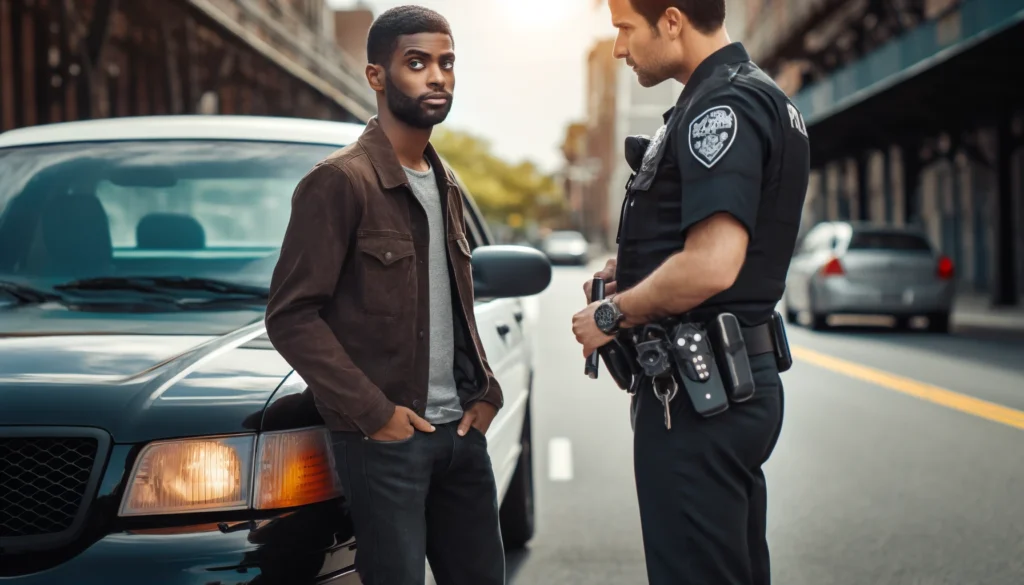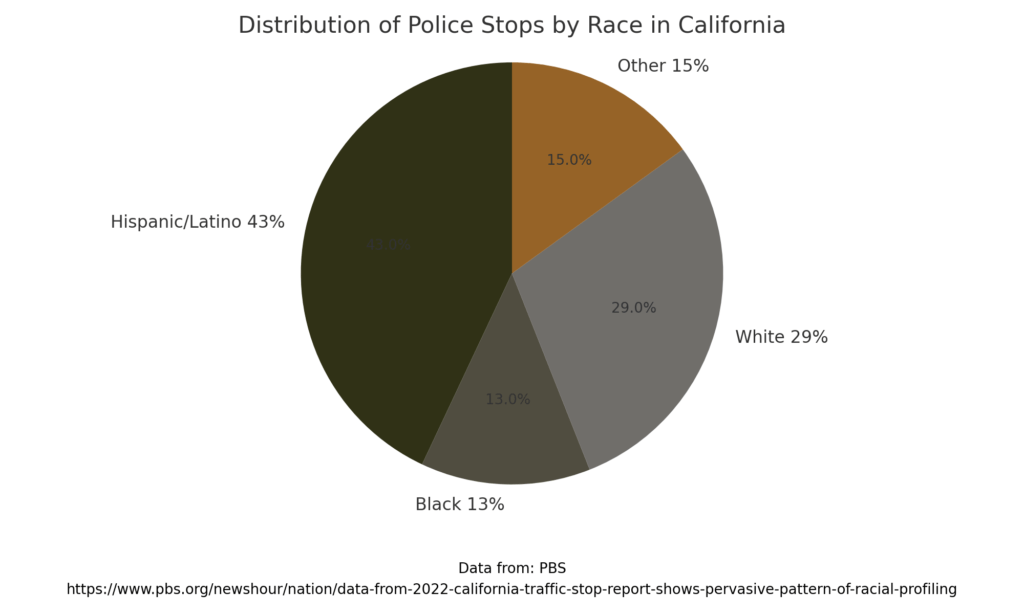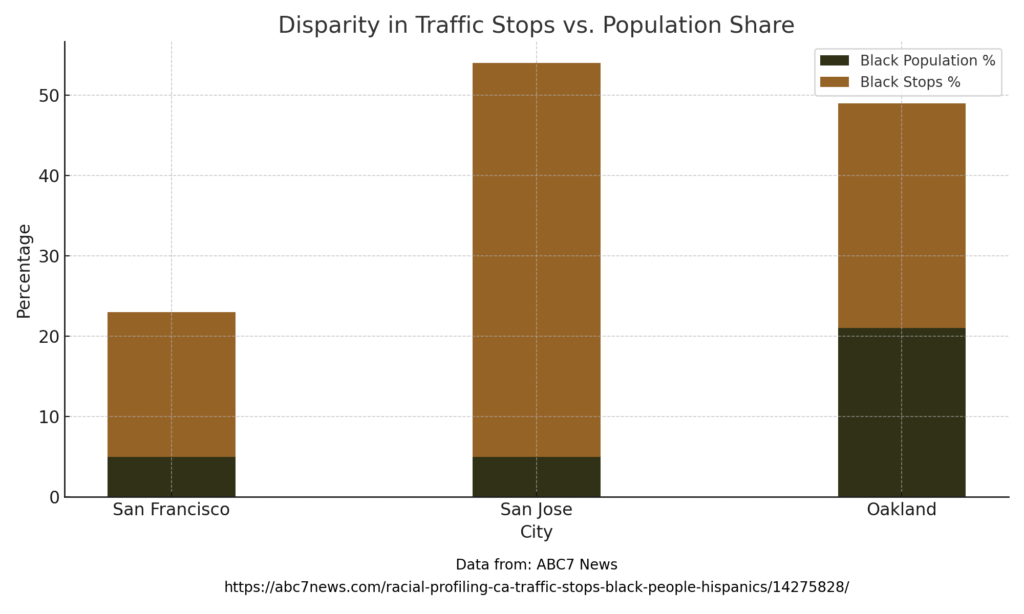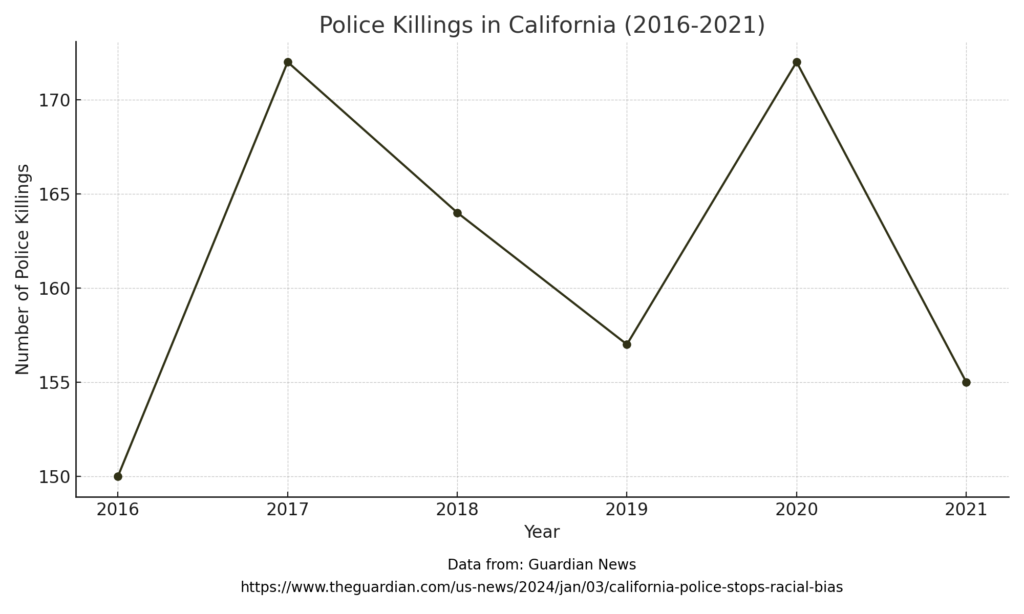
California Supreme Court Restricts Police Stops in Landmark Ruling
By Darius Spearman (africanelements)
Support African Elements at patreon.com/africanelements and hear recent news in a single playlist. Additionally, you can gain early access to ad-free video content.
The California Supreme Court issued a major decision on Thursday. Consequently, it will change how police officers interact with the public during stops and questioning. The court ruled that law enforcement cannot detain someone merely for trying to avoid contact with them.

Court: Reasonable Suspicion Required for Detention
The case of The People vs. Marlon Flores was at the center of the ruling. Associate Justice Carol Corrigan wrote in the majority opinion. She stated,
“before an officer can compel compliance with a show of authority… articulable facts must support a reasonable suspicion of criminal activity. Otherwise, the person is constitutionally protected and empowered to go on his or her way.” (ABC7 News)

The ruling focused on Flores, who was arrested in Los Angeles. He allegedly tried to hide from police by ducking behind a parked car. Subsequently, officers found drugs and a gun on him. However, the court determined that Flores’ “odd behavior” did not justify his detention. (Los Angeles Times)
30-Day Period for Decision to Become Final
The California Supreme Court issued its ruling in the case of The People vs. Marlon Flores on Thursday, placing new limits on when police can stop and question people (ABC7 News). However, a decision by the California Supreme Court does not become final until 30 days after the opinion has been filed (Forthcoming Opinions – Supreme Court of California). During this 30-day period:
- The parties may petition for rehearing within the first 15 days after the opinion is filed.
- The court itself may also grant a rehearing or modify its decision on its own motion.
Potential 60-Day Extension
The court has discretion to extend the finalization of the decision for an additional 60 days beyond the initial 30 days (Forthcoming Opinions – Supreme Court of California). So, assuming no petition for rehearing is filed and granted, the earliest the ruling could take effect and become binding precedent is 30 days from when the opinion was issued on Thursday.
Latest Effective Date Barring Rehearing
However, the court has the power to delay the decision becoming final for up to an additional 60 days. So the latest the ruling would take effect, barring a rehearing, is 90 days from the initial filing of the opinion.
Immediate Statewide Impact Once Finalized
Once the decision does become final after this 30-90 day period, it will immediately place new restrictions on police stops and detentions across California, requiring reasonable suspicion of criminal activity rather than just “nervous” behavior or avoidance of officers (ABC7 News, Los Angeles Times).
Advocates Praise Ruling, Police Unions Criticize
Community groups and civil rights advocates have applauded the court’s decision. They argue it marks an important step to prevent over-policing, particularly in communities of color.
“The court has finally acknowledged instances of over-policing for ‘innocent behavior’ and ‘just being in a certain neighborhood,'” said Sujung Kim, a managing attorney at the San Francisco Public Defender’s Office. (ABC7 News)

On the other hand, some police unions have slammed the ruling. The San Francisco Police Officers Association called it “another example of California’s criminal justice system working to protect criminals.” They also claimed it “opened a giant loophole” for drug dealers and other offenders to avoid arrest. (ABC7 News)
Ruling Sets Major Precedent for Police Interactions
The court’s decision will significantly impact litigation where people contest arrests. This is especially true when people of color allege police unjustly detained them. (Los Angeles Times) Moreover, it sends the Flores case back to trial court. This allows him to withdraw his plea and suppress the evidence against him.
In effect, this landmark ruling places new limits on when California police can stop and question individuals. Officers must now have reasonable suspicion of criminal activity. They can no longer rely on factors like “odd behavior” or a person’s attempt to avoid them.
While police reform advocates celebrate the decision, it has sparked backlash from some in law enforcement. Nonetheless, it sets a major precedent. Moving forward, it will shape how police interactions with the public are handled in the Golden State.
About the author
Darius Spearman has been a professor of Black Studies at San Diego City College, where he has been pursuing his love of teaching since 2007. He is the author of several books, including Between The Color Lines: A History of African Americans on the California Frontier Through 1890. You can visit Darius online at africanelements.org.
